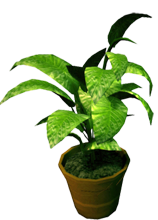GENERAL GARDENING TIPS |
|
 |
There are basically four simple tips for gardening. And also these are the most important tips that one should remember and apply for gardening. With the help of these tips one can easily cultivate beautiful and productive gardens. The following are the four tips that should be always followed for gardening. |
Where to plant: |
|
|
Plant your garden where it will get plenty of sunlight. The ideal location is an area that gets sun all day long. If this is not available, make sure your location at least gets the warm afternoon sun. The more sun your garden receives, the better your produce will be. |
|
Soil conditions: |
|
|
Adding composts and manures frequently to garden soil help the garden to grow to its full potential. Vegetables and herbs will grow best in well-drained soil with ample organic matter in it. |
|
Watering: |
|
|
Plant your garden in a place that has easy access to water. Most of your summer producing vegetables and herbs will need water in our warm dry summers. The best method of applying water is through a soaker hose. This not only helps conserve water, but helps prevent wet foliage that can lead to disease issues. |
|
Fertilizing: |
|
|
Vegetable gardens typically need ample fertilizer. Generally plants should be fertilized at the time of planting, and again 4-6 weeks prior to the harvest of the crop, depending on the crop. Good organic fertilizers to use in the garden are Garden-tone, Tomato-tone and Lime. |
|
Vermicomposting: |
|
|
Next time you find Earthworms or Red wrigglers, don’t kill them rather put them back in the soil and let them convert pieces of organic matter like vegetable wastes and dead leaves into rich humus and thus improve your soil’s fertility. |
|
What your plants may love to have: |
|
1.Banana TreatBury your banana peels under your rose bushes, they love the potassium. Throw down the peel, and then cover it. No need to dig down and bury them deep. 2.Coffee RegaleUse your coffee grounds (the residue remaining after brewing coffee) to feed your plants, especially nitrogen-loving ones like camellias, hydrangeas, and roses. Not only will you have healthier plants you’ll also save money on fertilizer. This can also reduce pests in the garden. 3.Energy BoosterTea bags buried whole or sprinkled onto your soil, help retain moisture and give them an energy boost. 4.Vegetable StockDon’t throw the water after boiling the vegetables. Just let it cool and pour them at the roots of your plants. Your plant will really love and grow wonderfully after having the vegetable soup. |
|
Mulch: |
|
|
By adding a layer of organic material like dead grass or leaves, hay, decorative gravel or even newspaper and cardboard, you cut down on the weeds ability to get much traction. |
|
Watering: |
|
|
Over-watering leads to plants with shallow, immature root systems, incapable of reaching down deeply to find water of their own. It also creates more work for you, as your plants will come to depend on regular watering. |
|
Trimming and pruning: |
|
|
Pruning is a practice that involves the removal of certain unwanted, diseased, non-reproducing parts of a plant. Pruning must be done systematically. If it is the flowering time, wait until flowering is done, then prune. A good method is to trim the young, wild, out of shape branches before you tackle the older, more established ones. In this way you give the plants a better form as it grows to increase its overall aesthetic appeal. It is advised that the cutters have sharp blades or else they could damage the plant creating and open wound susceptible to fungal and rust diseases. |
|
Cleaning: |
|
|
Make sure to thoroughly clean plants up to twice a week to keep them dust free. Dust interferes with the breathing of the plants and if not cleaned, plants appear dull and tend to wilt. |
|
Sun and Shade: |
|
|
Every plant needs light to grow and flourish, but the right amount of sunlight varies. Some plants do well when they get direct afternoon Sun. When choosing plants for your garden, look at the plant label to check its light requirements. UNDERSTAND THE REQUIREMENTS OF YOUR PLANTS.Here are some signs that a plant is getting too much sun:And here are signs that a plant isn't getting enough light:
|
|
Copper Tape: |
|
|
Copper tape wrapped around the rim of any pot or used on a border at ground level will keep slugs and snails at bay. |
|
Aphids: |
|
|
(1)Marigolds are easy to grow and they are known to keep Aphids away. (2)Planting vegetables intermixed with aromatic plants like garlic, chives, or marigolds can repel many problem insects. |
|























